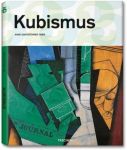Transregional versus National Perspectives on Contemporary Central European History
Transregional versus National Perspecti
Produktbeschreibung
This volume compares different regional perspectives on the national and democracy-building aims of individual states. It confronts discourses about national states to regional perspectives on the past as well as the current political and social landscape. Why are we observing calls for national identity right now? What are the roots of this development? How can a Central European identity be shaped when national perspectives are prevalent?
The book's first part analyses social and political processes that shaped nation-states in the Central European region and shows divergent trends of individual states when it comes to defining a regional approach of the Visegrád Group (Poland, Czech Republic, Slovakia, Hungary = V4). The second part focuses on key personalities of the 20th century history of individual V4 countries in the light of their perception in the neighbouring states and how they shaped national states as well as identities after the end of World War II. Similar aims and approaches implemented by individual countries often led to anything but raising regional understanding. The book's third part reflects upon activities of various initiatives aiming to approach this challenge from the perspective of civil society, and Central Europe's young generation.
The collection brings together leading historians of Central Europe from the V4 countries. It also offers external perspectives on historical developments in Central Europe from the perspective of the 21st century and on political cooperation as well as its roots. Lastly, it includes practitioners of Central European cooperation from both academia and civil society, and their reflection on their countries' political cooperation after 1989.
The book's first part analyses social and political processes that shaped nation-states in the Central European region and shows divergent trends of individual states when it comes to defining a regional approach of the Visegrád Group (Poland, Czech Republic, Slovakia, Hungary = V4). The second part focuses on key personalities of the 20th century history of individual V4 countries in the light of their perception in the neighbouring states and how they shaped national states as well as identities after the end of World War II. Similar aims and approaches implemented by individual countries often led to anything but raising regional understanding. The book's third part reflects upon activities of various initiatives aiming to approach this challenge from the perspective of civil society, and Central Europe's young generation.
The collection brings together leading historians of Central Europe from the V4 countries. It also offers external perspectives on historical developments in Central Europe from the perspective of the 21st century and on political cooperation as well as its roots. Lastly, it includes practitioners of Central European cooperation from both academia and civil society, and their reflection on their countries' political cooperation after 1989.
Zusatzinformation
| Author | Michal Vit / Michal Vit / Andreas Umland / Magdalena M. Baran / Magdalena M. Baran / Rick Fawn / Petr Pithart / Pavlina Janebova / Dominik Zelinsky / Milan Hauner / Olga Gyarfasova / Ivo Budil / Joanna Mysona Byrska / Dorota Pietrzyk | Verlag | ibidem |
|---|---|---|---|
| ISBN / EAN | 9783838210155 | Bindung | Taschenbuch |
Weitere beliebte Produkte
-

Tiger fressen keine Yogis
Piper.05184 Timmerberg.Tiger <span>Als Taschenbuch gegenüber Hardcover 10,00 €</span>
-

-

Betriebsverfassungsrechtliches Beweisverwertungsverbot bei Nichtbeachtung des Mitbestimmungsrechts nach Paragraph 87 Abs. 1 Nr. 1 und Nr. 6 BetrVG
Kaltenmeier:Betriebsverfassungsrechtlic <span>Als Taschenbuch gegenüber Hardcover 39,90 €</span>




















